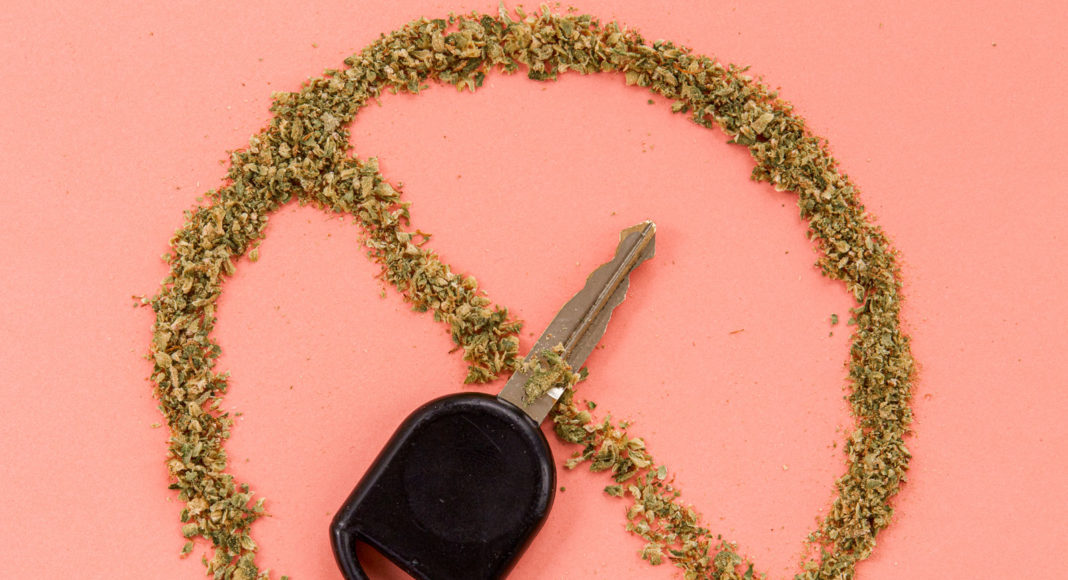In an op-ed for Marijuana Moment last week, Paul Armentano, deputy director of NORML, declared that tens of thousands of workers “are leaving the commercial trucking industry because the federal government refuses to update its antiquated marijuana policies.”
At first blush, that number sounds ridiculously high. But Armentano brought receipts, and the number seems to be more or less accurate. In January, the Federal Motor Carrier Safety Administration, an arm of the Department of Transportation, issued a report indicating that, since 2020, about 166,000 truckers tested positive for some banned substance, most often cannabis.
Testing for weed and other substances is mandatory for drivers who work for firms with federal contracts. The tests are conducted before a driver is employed, after accidents and, most problematically, at random intervals throughout the year. The requirement was enacted in 1988, at the height of the War on Drugs.
Once drivers (or other covered workers) test positive, they can enter a process involving further testing that will return them to the road, assuming their urine is clean. But of those 166,000 truckers who tested positive, 91,000 decided not to sign up for that process. In other words, they said, “Screw this, I’ll go work somewhere else.” This doesn’t count however many drivers have never tested positive but still were put off by the testing regime.
As Armentano noted, this has a devastating impact on supply chains and prices. There is a severe shortage of truckers, and anything that makes the job less appealing is going to have really bad results. There’s not much that makes an otherwise-decent job less appealing than having to routinely pee in a cup, even if you don’t use weed. With a national unemployment rate under 4%, and employers desperate to find people to hire, those drivers have plenty of other options, including working for trucking firms that don’t fall under the federal rules.
But the problem with the testing requirement goes beyond the economic impacts: There is also the fundamental unfairness of it all. THC stays in the system long after it’s ingested, so testing for it says nothing about whether a trucker has ever driven while high. What’s more, the tests have long been done using urine, which is the least reliable measure of whether a trucker was behind the wheel while high. Urine tests can show positive results weeks and even months after a person has ingested THC, meaning that drivers are in effect prohibited from ever using pot, even if they live in states where it’s legal.
The DOT last year finalized rules allowing tests on saliva. This is a better indicator of whether a trucker has actually driven while high, but it’s far from reliable, or even meaningful: THC is present in saliva for one to 24 hours after consumption. Such testing will still nab some truckers who have never driven while high. Meanwhile, truckers with, for example, debilitating booze hangovers get behind the wheel every day, and there’s no test for that.
The situation is bad enough that American business (which in general would prefer to stay out of debates over drug policy) is increasingly calling for reform, and not only for testing.
In 2021, Amazon mounted a big, multi-pronged publicity campaign, announcing that it would stop drug-testing employees who are not covered by DOT rules. The problem of course is that Amazon employs many thousands of workers who come under those rules, and they are still being tested. When Amazon made its announcement, it also called for federal legalization of weed. This, as intended, made a huge splash and drew attention to the testing issue and the labor-shortage problem. The move also served to indicate just how mainstream cannabis use has become (as if the 65%-plus national approval of legalization weren’t enough).
Legalization of course would instantly eliminate this problem, as it would so many problems. And yet, here we are still waiting for Congress (mostly Senate Republicans who have used the filibuster to prevent legislation from reaching a vote) to catch up to the majority of states where pot is legal, and to the large majority of Americans who have had enough of all this nonsense.




Almost right: it’s not THC that stays in the system for weeks and is picked up in urine and hair tests; it’s an inactive metabolite of THC. California law now bans testing for inactive metabolites for most professions. But as the author points out, the feds have fallen behind in more ways than one.